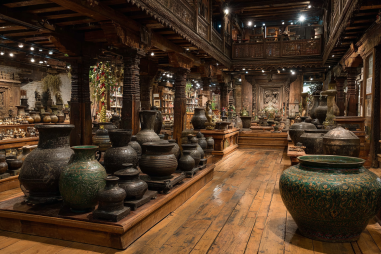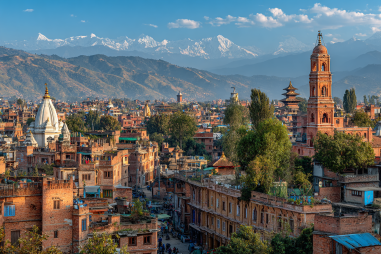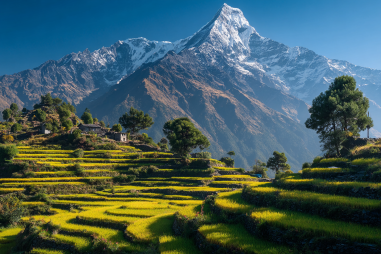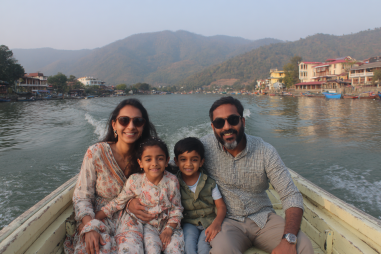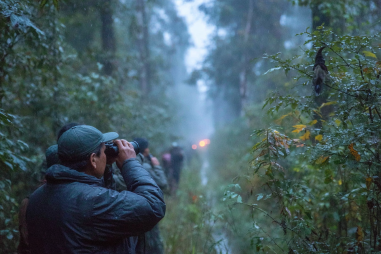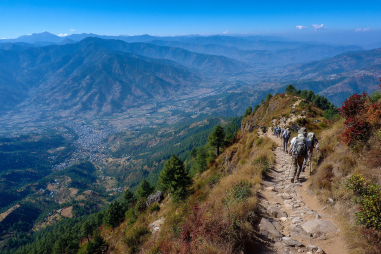Traveling to Nepal offers an enchanting experience filled with breathtaking landscapes, rich culture, and warm hospitality. However, like visiting any new country, prioritizing safety is essential to ensure your journey is both enjoyable and secure. This guide provides key Nepal travel safety tips—from managing health concerns to understanding local customs and avoiding common scams—helping you prepare for a worry-free adventure in the heart of the Himalayas.
Health and Altitude Sickness Precautions
Nepal’s stunning mountain regions are a major attraction, but the high altitudes come with health considerations, especially altitude sickness. Before your trip, consult your doctor about medications that can help prevent altitude sickness if you plan to trek or visit high-elevation areas like Everest Base Camp or Annapurna Circuit.
Once in Nepal, take your time to acclimate. Ascend slowly to allow your body to adjust, and watch for symptoms such as headaches, nausea, dizziness, or fatigue. Staying hydrated, eating properly, and avoiding alcohol during ascents can minimize risks. If symptoms worsen, descend immediately and seek medical attention.
In addition to altitude concerns, basic health precautions are crucial. Nepal is relatively safe, but travelers should ensure routine vaccinations are up to date, including Hepatitis A, Typhoid, and Tetanus. Drink bottled or filtered water and be cautious with street food to avoid stomach illnesses. Carry a basic first-aid kit with essentials like bandages, antiseptic, pain relievers, and any personal medications.
Safeguarding Your Belongings
Like many popular tourist destinations, petty theft can occur in crowded areas of Nepal, particularly in Kathmandu and Pokhara. Stay vigilant to protect your belongings from pickpockets and bag snatchers. Use a money belt or neck pouch to keep your passport, cash, and cards close to your body. Avoid carrying large amounts of cash, and split your money and cards between different secure locations.
When staying in hotels or guesthouses, use lockers or safes to store valuables when available. Be cautious around ATM machines to prevent skimming or theft, and cover your PIN when entering it.
Additionally, it’s wise to keep digital copies of important documents such as your passport, visa, insurance, and emergency contacts stored securely on your phone or cloud services. This helps with replacements or emergencies.
Transportation Safety
Nepal’s rugged terrain makes transportation a key consideration for safe travel. Roads can be narrow, winding, and sometimes poorly maintained, especially during the monsoon season. If you’re hiring a car or using taxis, choose reputable services and ensure drivers are experienced. Always wear seatbelts where available.
Domestic flights are common to save time on long distances, but check airline safety records and weather conditions before booking. Weather can be unpredictable in mountainous areas, so flights may be canceled or delayed for safety reasons.
Public transportation, such as local buses, can be crowded and less reliable. Exercise caution by keeping an eye on your belongings and avoiding overnight bus rides if you’re unfamiliar with the area. For trekking, stick to established trails and consider hiring licensed guides or porters who know the terrain and local conditions well.
Navigating Local Customs Respectfully
Nepal is a culturally rich nation with diverse ethnic groups, languages, and traditions. Respecting local customs enhances your travel experience and helps you connect authentically with the people.
Dress modestly, especially when visiting religious sites like temples and monasteries. Remove your shoes before entering sacred spaces. Ask permission before taking photos of locals or religious ceremonies.
If invited to share food or tea, accept graciously as it reflects the local spirit of hospitality. Learning a few basic Nepali phrases such as “Namaste” (greeting) and “Dhanyabad” (thank you) shows respect and openness. Be mindful of social norms, such as avoiding public displays of affection, particularly in rural areas, and always behave politely and patiently.
Avoiding Common Scams
While Nepal is generally safe for tourists, some commonly reported scams can catch visitors off guard. Being aware helps you stay protected and enjoy your trip without hassle.
- Tour Guide Overcharging: Always book guides and trekking permits through licensed agencies. Be cautious of unofficial guides offering steep discounts.
- Taxi Fare Rip-offs: Insist on using the meter or agree on a fare before your trip. Avoid taxis that refuse to hire you based on your destination.
- Fake Charities and Donation Requests: Verify any organizations before donating money or goods. Support reputable NGOs through known channels.
- Currency Confusion: Be vigilant when exchanging money; use authorized exchange counters and count your cash carefully.
- Overpriced Goods: Bargain politely in markets, but be aware of inflated prices for tourists. Research typical costs in advance.
Emergency Contacts and Assistance
Before traveling, save important emergency numbers in your phone and write them down. Key contacts include:
- Police: 100
- Fire Department: 101
- Ambulance/Medical Emergency: 102 or 112
- Tourist Police (specialized for traveler support): 1471
Many areas of Nepal have limited medical facilities, so consider purchasing travel insurance with evacuation coverage. In more remote trekking regions, emergency helicopter rescue is available but can be costly, so make sure your insurance covers such services.
Staying Connected and Informed
Staying informed about local news, weather, and travel advisories improves your safety. Download offline maps and travel apps, and consider purchasing a local SIM card for reliable mobile data and calls.
Register with your country’s embassy or consulate upon arrival or online so they can assist you in emergencies. Always notify family or friends of your itinerary and check in regularly.
Pay attention to weather updates, especially during monsoon season (June to September), when landslides and road closures can occur. Local advice is valuable—don’t hesitate to ask hotel staff or guides about current conditions.
Enjoying a Smooth and Safe Nepal Adventure
By planning ahead and staying mindful of health, security, and cultural practices, your trip to Nepal can be as safe as it is unforgettable. Take time to prepare, respect the local environment and people, and you’ll create lasting memories amidst the spectacular scenery and vibrant traditions. Travel smart, stay alert, and embrace the magic that Nepal has to offer—your adventure awaits!


